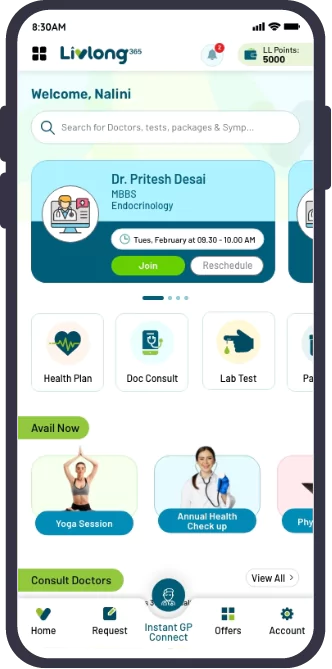Struggling with a lack of concentration and focus in adults can hinder daily productivity and overall well-being. In today’s world, where stress, and more specifically, time, is a very real commodity, it is becoming harder to maintain focus. The following is a how to get mental clarity and focus’ approach that will be of value when exercising self-control over the mind and sharpening the mental edge. If you turn to these tendencies, you are setting the stage for a balanced and effective way of living.
Understanding Mental Clarity and Its Importance
Mental health is the capacity of the mind to think and reason effectively. A number of grown-ups face problems because of their inability to concentrate and focus when working, which is only aggravated by stress and anxiety. The National Health Services also confirms that about 40% of adults are employing their working time with mental health issues affecting concentration. At least, that is an understanding path for reaching these challenges: recognizing these challenges is the first step to ending them.
Recognising Triggers That Impact Concentration
Some of the causes of diminished focus and anxiety include spending a lot of time on electronic devices, poor sleep and an imbalanced diet. Knowledge of these factors is important if the problem is to be effectively addressed. By dealing with these causes, you create the best ground work for the faculties of your mind.
Establishing Daily Mindfulness Practices
Practicing relaxation exercises for instance; meditation or deep breathing has good effect on concentration. Studies show that mindfulness reduces anxiety and enhances cognitive function, making it easier to combat a lack of concentration and focus in adults.
Building Awareness Through Reflection
Self-auditing requires taking some time and analyzing the behaviors that characterize a given day and looking for areas of improvement. It may be done when writing diaries or talking to an expert, but the main focus is to enhance self-attunement for proper improved mental health.
Prioritising Sleep for Improved Focus
Sufficient and good quality sleep is very important for the cognition and emotions of a human being. Lack of sleep or poor quality sleep in adults or lack of concentration and focus in adults has a very large negative impact on the adults and their ability to concentrate and focus in the general population and at places of work. The Sleep Foundation recommends that adults need between seven and eight hours of efficient sleep per night.
Creating a Consistent Sleep Schedule
Staying on a sleep schedule keeps your internal clock running smoothly. It also helps if you practice going to bed and waking up at the same time daily, that way you are fresh and rested.
Reducing Distractions Before Bedtime
Minimize or stop the use of electronic gadgets at least one hour before sleeping time. Blue light from electronic devices, mobiles can disrupt the sleep hormone melatonin and cause sleep disturbances.
Incorporating Relaxation Techniques
Many people find that pre-sleep tasks like gentle stretching or developing a grateful attitude set your mind for slumber. They also avoid stress and ensure that you wake up relaxed and be able to focus for the rest of the day.
Nourishing Your Brain with Mind Booster Foods
Your diet plays a critical role in enhancing mental clarity. Consuming mind-booster foods rich in essential nutrients can significantly improve your concentration and focus. Nutritional deficits often exacerbate a lack of concentration and focus in adults.
The Role of Omega-3 Fatty Acids
Foods like salmon, flaxseeds, and walnuts contain omega-3 fatty acids, which are essential for brain health. These nutrients improve memory and cognitive function, making them ideal for enhancing focus.
The Power of Antioxidant-Rich Foods
Berries, dark chocolate, and leafy greens are packed with antioxidants that combat oxidative stress. These foods help protect brain cells and support long-term mental clarity.
Staying Hydrated for Optimal Performance
Dehydration is a common yet overlooked cause of reduced focus. Drinking sufficient water throughout the day ensures your brain functions efficiently, minimizing the effects of a lack of concentration and anxiety.
The Impact of Regular Exercise on Focus
Exercise, as a component of physical activity is regarded as the best strategy in enhancing mental health that includes sharp focus. Exercise raises blood flow to the head, enhances mental capacity and diminishes tension. Studies from the British Journal of Sports Medicine reveal that regular exercise combats symptoms of a lack of concentration and focus in adults.
Engaging in Aerobic Activities
Exercises such as running, swimming or cycling are great for brain health owing to a boost in oxygen supply. Just 30 minutes of aerobic activity a day can be enough to produce these results.
Practising Yoga and Pilates
Yoga and pilates involve body exercise with thought and mindfulness. Thus, yoga and pilate enhance mental focus and help to reduce some of the symptoms associated with anxiety disorder.
Incorporating Movement Into Your Day
Shooting some lavatory breaks and taking strolls during the break can help the mind adapt, and that is why doing stretches while seated is advantageous. Such measures help in ensuring that a person focuses for the long-term needing less reminders or constant encouragement to work.
Practising Mindfulness to Stay Present
Being present and paying attention to one’s experience are the two major principles of mindfulness. This practice reduces distractions and enhances mental clarity, making it a powerful tool for addressing a lack of concentration and focus in adults.
Starting with Guided Meditation
Start with 5-10 min meditation, focused on building up your mindfulness . It’s even easier as there are such apps that have settings for beginners.
Incorporating Deep Breathing Exercises
Controlled breathing alleviates tension, and has a therapeutic effect on the body. It is a practice that may be helpful during periods of difficulty and which prevents a lack of concentration and focus in adults.
Building Consistency Through Routine
Mindfulness is best practiced with consistency, and its practice is likely to have positive effects in the long run. Thus it is possible to find that dedicating even five minutes per day to mindfulness can result in the benefits that will affect attentiveness and consciousness.
Also Read : Mindfulness vs Meditation
Minimising Distractions for Enhanced Focus
Disruptions are one of the biggest banes to productivity and concentration. Addressing these disruptions is crucial for overcoming a lack of concentration and focus in adults.
Identifying Your Biggest Distractions
Find out the most frequent sources of distraction; it can be a mobile phone, loud sounds, or chaos within or around your working space. For these factors, it means you can now empower yourself.
Creating a Focus-Friendly Workspace
Clear you working environment of miscellaneous items and disturbances. Other means such as noise cancelling headphones and application blockers will go further in assisting the process.
Practising the Pomodoro Technique
This technique in time management involves organizing work in such a way that one works for twenty five minutes and takes a five minutes break. The specific approach also helps to extend a structured focus without experiencing burnout at any one point in time.
Taking Breaks to Recharge Your Mind
When working for a long time without taking a break, one feels tired and bored, which has a negative impact on productivity. Scheduled breaks can refresh your mind and alleviate a lack of concentration and focus in adults.
Understanding the Science Behind Breaks
Dissertation suggests that besides giving rest, short breaks increases productivity because the brain is refreshed. One’s productivity could improve dramatically just from the simple act of taking a five-minute break.
Engaging in Restorative Activities
When on break, opt for things that can help you recharge and rejuvenate. Being outdoor, listening to music or having a healthy snack is also good.
Implementing Regular Breaks Into Your Routine
It is important to take regular breaks in your daily routine. An easy way to do that is by setting alarms at regular intervals to remind you to take a break. This little practice can help you prevent fatigue and will allow you to maintain focus and energy for the rest of the day.
Also Read : Solutions And Treatment To Help You Improve Concentration
Simplifying Your To-Do List for Better Productivity
Excessive workload with long lists of things to be done can cause tension, poor focus and anxiety. Simplifying your routine allows you to give your attention to what really matters.
Prioritizing Your Top Three Tasks
When at work, concentrate on finishing three major activities in a day. This strategy helps to address all the concerns without being bogged down by the progress.
Breaking Tasks Into Manageable Steps
Solve small problems when there are big problems with the overall project. If one tries to attack a task with many procedures, it becomes easier to go through it with the help of taking measures in several moves.
Using Productivity Tools
You can use productivity applications to increase your work productivity based on the task list. These tools help you decrease the time you spend on processes and increase your level of concentration.
Cultivating good concentration and mental focus needs time and energy, and can entail a few specific alterations. Some of the problems like lack of concentration and focus in adults and anxiety, can be solved by a change in sleep habits, nutrition, exercise, and mindfulness. Take mind-boosting foods, remove interferences to the work area, and set procedures that would support concentration. Thus, gradual progress can make the whole difference and guarantee the client a better and healthier life. For all your mental health issues, talk to a Psychologist



















